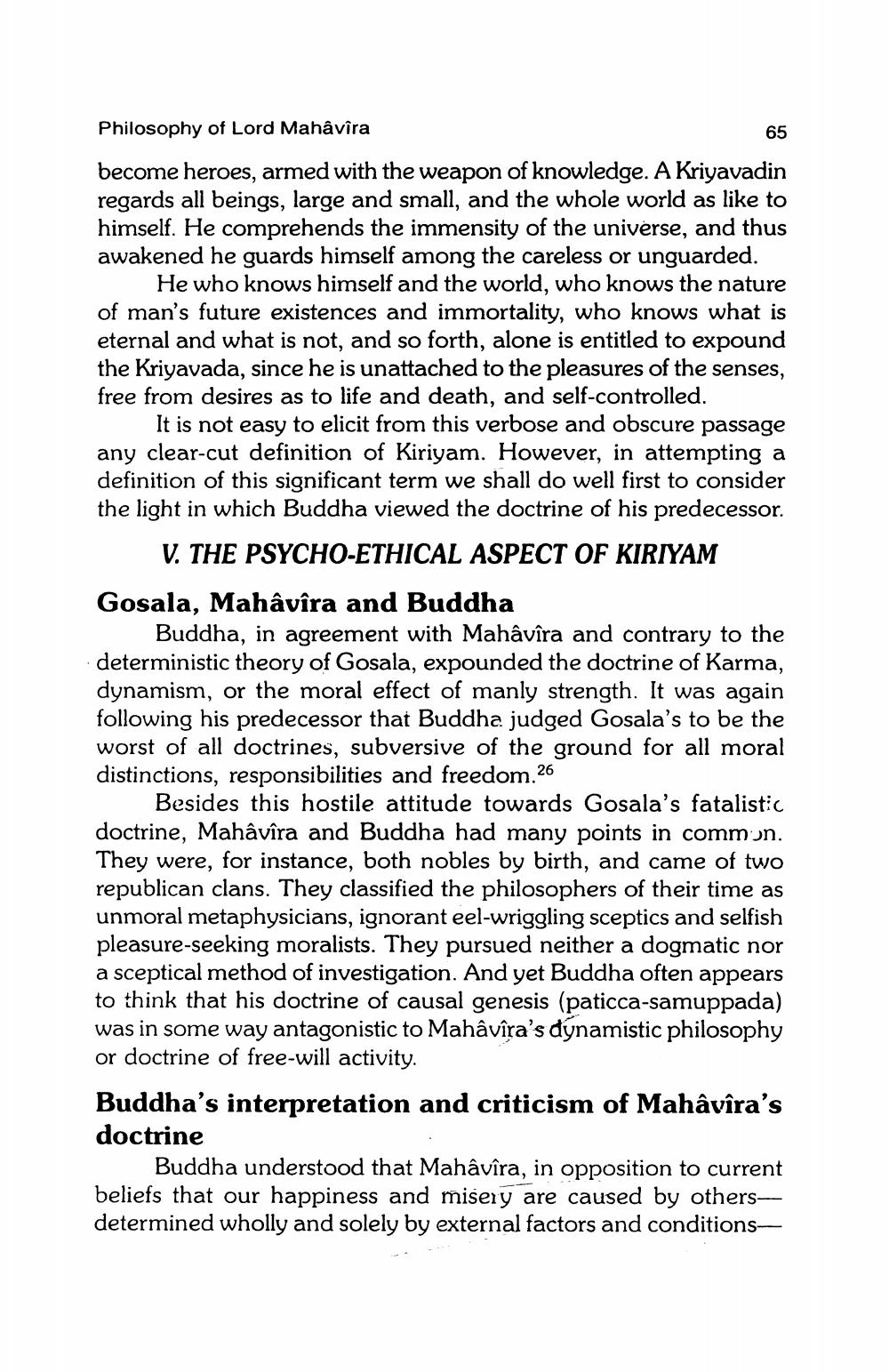________________
Philosophy of Lord Mahâvîra
become heroes, armed with the weapon of knowledge. A Kriyavadin regards all beings, large and small, and the whole world as like to himself. He comprehends the immensity of the universe, and thus awakened he guards himself among the careless or unguarded.
He who knows himself and the world, who knows the nature of man's future existences and immortality, who knows what is eternal and what is not, and so forth, alone is entitled to expound the Kriyavada, since he is unattached to the pleasures of the senses, free from desires as to life and death, and self-controlled.
It is not easy to elicit from this verbose and obscure passage any clear-cut definition of Kiriyam. However, in attempting a definition of this significant term we shall do well first to consider the light in which Buddha viewed the doctrine of his predecessor.
V. THE PSYCHO-ETHICAL ASPECT OF KIRIYAM
65
Gosala, Mahâvîra and Buddha
Buddha, in agreement with Mahâvîra and contrary to the deterministic theory of Gosala, expounded the doctrine of Karma, dynamism, or the moral effect of manly strength. It was again following his predecessor that Buddha judged Gosala's to be the worst of all doctrines, subversive of the ground for all moral distinctions, responsibilities and freedom.26
Besides this hostile attitude towards Gosala's fatalistic doctrine, Mahâvîra and Buddha had many points in common. They were, for instance, both nobles by birth, and came of two republican clans. They classified the philosophers of their time as unmoral metaphysicians, ignorant eel-wriggling sceptics and selfish pleasure-seeking moralists. They pursued neither a dogmatic nor a sceptical method of investigation. And yet Buddha often appears to think that his doctrine of causal genesis (paticca-samuppada) was in some way antagonistic to Mahâvîra's dynamistic philosophy or doctrine of free-will activity.
Buddha's interpretation and criticism of Mahâvîra's doctrine
Buddha understood that Mahâvîra, in opposition to current beliefs that our happiness and misery are caused by othersdetermined wholly and solely by external factors and conditions




